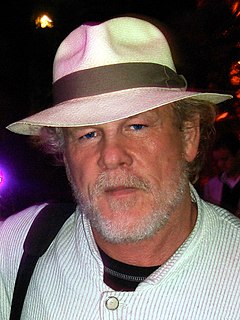Ein Zitat von Chad Hurley
Google vertritt im Grunde die Idee, dass Websites, die auf andere Websites verlinken, eine bessere Suchmöglichkeit schaffen.
Verwandte Zitate
Google – und einige der anderen Websites, YouTube und, wissen Sie – Google hat eine erstaunliche Suchmaschine. Das Kartenprodukt ist unglaublich. Es gibt also eine Art Austausch, wenn man eine Menge Anzeigen aufgibt. Facebook ermöglicht Ihnen grundsätzlich Zugriff auf Ihre Freunde, zu denen Sie theoretisch bereits Zugriff hatten. Manchmal verstehe ich den Deal nicht wirklich, aber ich denke, es macht es etwas einfacher. Das ist also ihr Beitrag.
Konkurrenten argumentieren, dass Google seine Suchalgorithmen manipuliert, um Einträge für konkurrierende Suchmaschinen herabzustufen. Viele der Herabstufungsvorwürfe stammen im Allgemeinen von Websites von ziemlich fragwürdiger Qualität, wie z. B. Nextag und Foundem. Einige der Hauptkonkurrenten von Google im Bereich der „spezialisierten Suche“ platzieren sich eindeutig gut in den Suchergebnissen – Amazon und Yelp.
Wenn Sie einige Websites über den Zusammenhang zwischen Impfstoffen und Autismus googeln, werden Sie sehr schnell feststellen, dass Google Ihnen Ihre Ansicht darüber wiederholt, ob dieser Zusammenhang besteht, und nicht, was Wissenschaftler wissen, nämlich dass es keinen Zusammenhang zwischen Impfstoffen und Autismus gibt Autismus. Es ist eine Feedbackschleife, die unsichtbar ist.
Hören Sie auf, das Web lediglich als Anzeigemöglichkeit und nicht als Möglichkeit zur Interaktion zu betrachten. Dadurch entsteht kein neues Geschäftsmodell, es verändert lediglich ein Geschäftsmodell, das nicht wächst und veraltet ist. Der Grund dafür, dass Websites wie Google Werbekunden aus Tageszeitungen stehlen, liegt nicht darin, dass Google mehr Aufmerksamkeit erregt. Das liegt daran, dass Google die Interaktivität des Webs genutzt hat, um eine neue, bessere Möglichkeit zur Werbung bereitzustellen.
„Abhängige Web“-Plattformen wie Twitter, Facebook, Google und Yahoo sind Orte, an denen Menschen neue Inhalte entdecken und teilen. Unabhängige Websites sind Millionen von Blogs, Community- und Service-Websites, auf denen leidenschaftliche Menschen mit Gleichgesinnten „abhängen“. Hier entstehen häufig geteilte Inhalte.
Technisch gesehen können Webbrowser steuern, was Benutzer sehen, und Websites, die Javascript verwenden, können alles überschreiben, was von den ursprünglichen Autoren stammt. Browser nutzen in großem Umfang Javascript, um ein interaktives Internet zu erstellen. Websites wie YouTube, Facebook und Gmail könnten ohne sie lahmgelegt werden.
Bis 1990 hatte die EPA 32.645 Standorte früherer Chemieabfalldeponien gezählt, die saniert werden mussten. Bei einigen davon handelt es sich um echte Mülldeponien, bei vielen handelt es sich jedoch um ehemalige Produktionsstätten, in denen Fässer voller Chemikalien einfach aufgegeben wurden. Die Namen der berüchtigtsten Personen erscheinen auf der Nationalen Prioritätenliste der EPS. Dies sind die sogenannten Superfund-Sites, Bezeichnungen für den Super-Geldfonds, der 1980 vom Kongress eingerichtet wurde, um sie zu bereinigen. Im Jahr 2009 umfasste die Superfund-Liste 1.331 Standorte.
Pompeji ist ein außergewöhnlicher Ort, weil er genau so erhalten blieb, wie er war. Es gibt viele andere Seiten. Wenn Sie andere antike Stätten auf der ganzen Welt besuchen, sind diese durch die Ereignisse, die im Laufe der Jahrhunderte seit ihrer Aufgabe passiert sind, stark beschädigt. Aber dieser war einfach nur versiegelt, man sieht also Felsoberflächen und die in die Steine eingemeißelten Buchstaben und Namen sehen aus, als wäre es erst gestern gemacht worden.

































